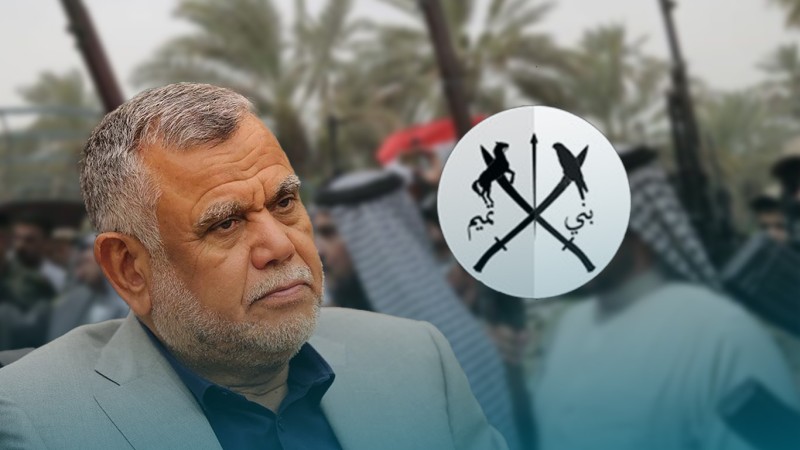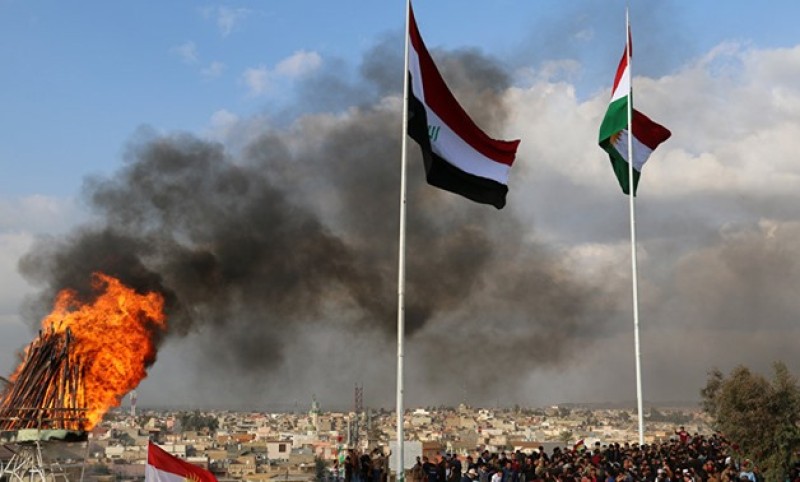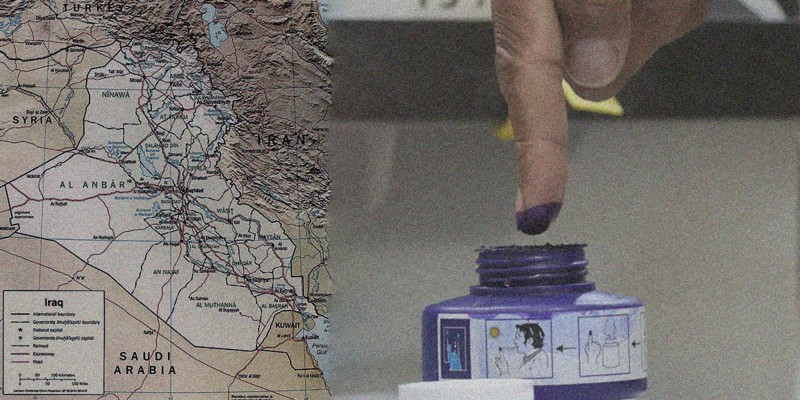Nineveh province is Iraq’s second largest, with a population of approximately 4.5 million.
In the upcoming December 18 provincial council elections, the province will see a struggle over its 26 seats as well as three quota seats allocated to the Yazidi, Shabak, and Christian minority groups.
Some 30 coalitions, parties, and independent candidates will be competing for these seats. Of the approximately 2.5 million people eligible to vote, some 1.799 have been registered to do using biometric forms of identification: over 70%.
Nineveh is famous for being a city that includes many different components, religions and sects. This leads many to claim that the province will witness the fiercest electoral confrontation as voters are expected to rush to back candidates to represent them in the provincial council. Many claim that this will thus result in conflict between Arabs and Kurds and between Shia and Sunni Muslims.
We have also seen an internal Sunni Arab conflict within Nineveh lists. Major players at the top of lists have included former Nineveh governor Najm al-Jabouri - who was excluded from the competition due to regulations concerning Iraq’s Accountability and Justice Law to remove former members of the dissolved Baath Party from the security and administrative institutions of the government – and who is part of the Nineveh for its People party as well as former parliament speaker Mohammed al-Halbousi, whose parliamentary membership was terminated by a court decision and who is part of the Taqaddum (Progress) party.
The al-Hassm al-Watani (National Coalition) list is led by current Defense Minister Thabet al-Abbasi in an alliance with Jabouri and former parliament speaker Osama al-Nujaifi, the al-Azm list is led by Muthanna Al-Samarrai allied with Khaled Al-Obaidi and Muhammad Abd Rabbo, while the al-Siyadah (the Sovereignty Alliance) is led by Khamis Al-Khanjar. And then there is the Tajdid (Renewal) Party under Faleh al-Zaydan as well as the National Contract list under Faleh al-Fayyad, the head of the Shia-led Popular Mobilization Forces (PMF), and various other parties and alliances including one under Rayan al-Kildani from the Christian community.
The competition has as its main goal that of securing the position of provincial governor.
Among the Kurdish part of the population, there will not be as much competition as the Kurdistan Democratic Party (KDP) retains popularity and dominance within this section of the population and may even secure the most votes overall in Nineveh of any party.
As for the Shia community, all the blocs are united in the al-Hadbaa National Alliance.
Competition highest among Sunnis
The strongest conflict in the elections will be among the Sunni community, which is expected to turn out in mass due to the current stability in the province and their desire not to repeat the mistake of boycotting elections as they have in the past. That boycott cost them dearly in political terms.
Competition for the three minority quota seats will be strong since parties and political blocs and leaders want to control these seats by supporting figures belonging to these minority communities in name alone.
For example, the PMF are supporting a Yazidi candidate who is one of its fighters and a relative of one of its brigade leaders and have told PMF fighters and their families to vote for him. They have also allegedly bought votes for him from those for other Yazidi candidates who only have the support of their tribe or party.
As for the Christian seat, Rayan Kildani is supporting a Christian candidate through harnessing the resources of the PMF and the Ministry of Immigration and Displacement, which is led by a member of Iraq’s Christian community. Fighters of the 50th Brigade are allegedly being forced to vote for his candidate and families have reportedly been provided with food aid and household appliances as well as the chance to have their names listed for returnee grants for the displaced.
For the Shabak seat, competition will be fierce between the Shia-backed Shabak candidates among themselves and also between them and the candidate Ghazwan Al-Dawoodi, head of the Bashiqa district, who is supported by the KDP. This stiff competition will cause the Shabak to lose the ability to compete for general seats. If they had agreed among themselves on a quota seat, they would have obtained one or more general seats in the provincial council.
Election results forecast
Through the study of the situation on the ground and the electoral scene, I expect the 26 seats of the Nineveh provincial government to be the following:
1. KDP – 5 or 6
2. Nineveh for its People (Jabouri’s party) – 4 or 5
3. Hassm al-Watani – 1 or 2
4. Taqaddum (Halbousi’s party) – 3
5. Al-Azm - 1 or 2
6. Al-Hadbaa National Alliance (components except National Contract) – 2
7. al-Siyadah – 2
8. al-Tajdid – 1 or 2
9. Nineveh People’s Union – 1 or 2
10. National Contract – 1 or 2
11. National Identity – 1 seat
These forecasts in the pre-election period, which has nonetheless entered the final stage. And, of course, there are always surprises in any elections but I do not expect to see more than a 10% variance from current expectations.
And there will undoubtedly be other alliances formed after the elections. The position of governor will go to our Sunni brothers while the head of the provincial council will be from the KDP since there will most likely be an alliance between the KDP and some of the Sunni Arab lists to manage the province and its council in the next stage.
A sort of balance will be formed in the administration of the province. However, it should be noted that some forces will try to force it in the other direction, especially those close to armed factions.
Maslawis ‘eager to vote’
What is interesting to those observing these elections is that a large number of Mosul residents are expected to vote including those that did not vote in the previous elections.
We will see a high turnout in most areas of the province. One of the reasons for this is that those living in Nineveh are seeking some sort of political stability after the years of occupation by the Islamic State international terrorist organization and the destruction wrought by the battle to retake it. They yearn to take part in choosing those who will work to achieve this stability to avoid a repetition of the past.
Another reason is the presence of the PMF and the tribal PMF forces in the province, who have reportedly had the possibility to buy 10 electoral cards for each of them to vote for their chosen candidates.
And then there are national, sectarian, and other motives related to community identities that increase the participation rate in areas with diverse populations as well as the use of money for political ends in the elections.
We have noticed that there is unreasonably large amounts being spent by some candidates that total almost the entirely of their annual salaries. We believe that this issue requires the attention of the Independent High Electoral Commission and that expenditure by candidates and parties must be more closely scrutinized.
Another point is that many of the officials in the province have put forward their relatives to stand as candidates, which we see as an unhealthy trend for the purposes of improved democracy in Iraq in general and Nineveh especially.
** The views, thoughts, and opinions expressed are of the author and do not represent those of The New Region.

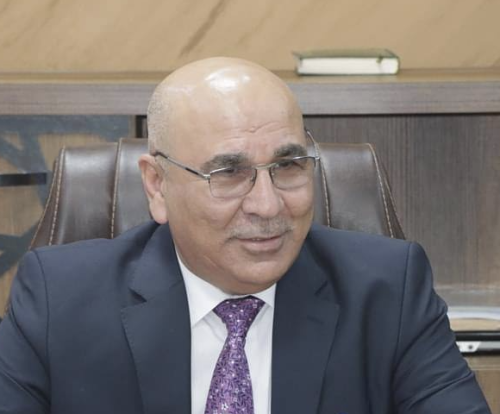
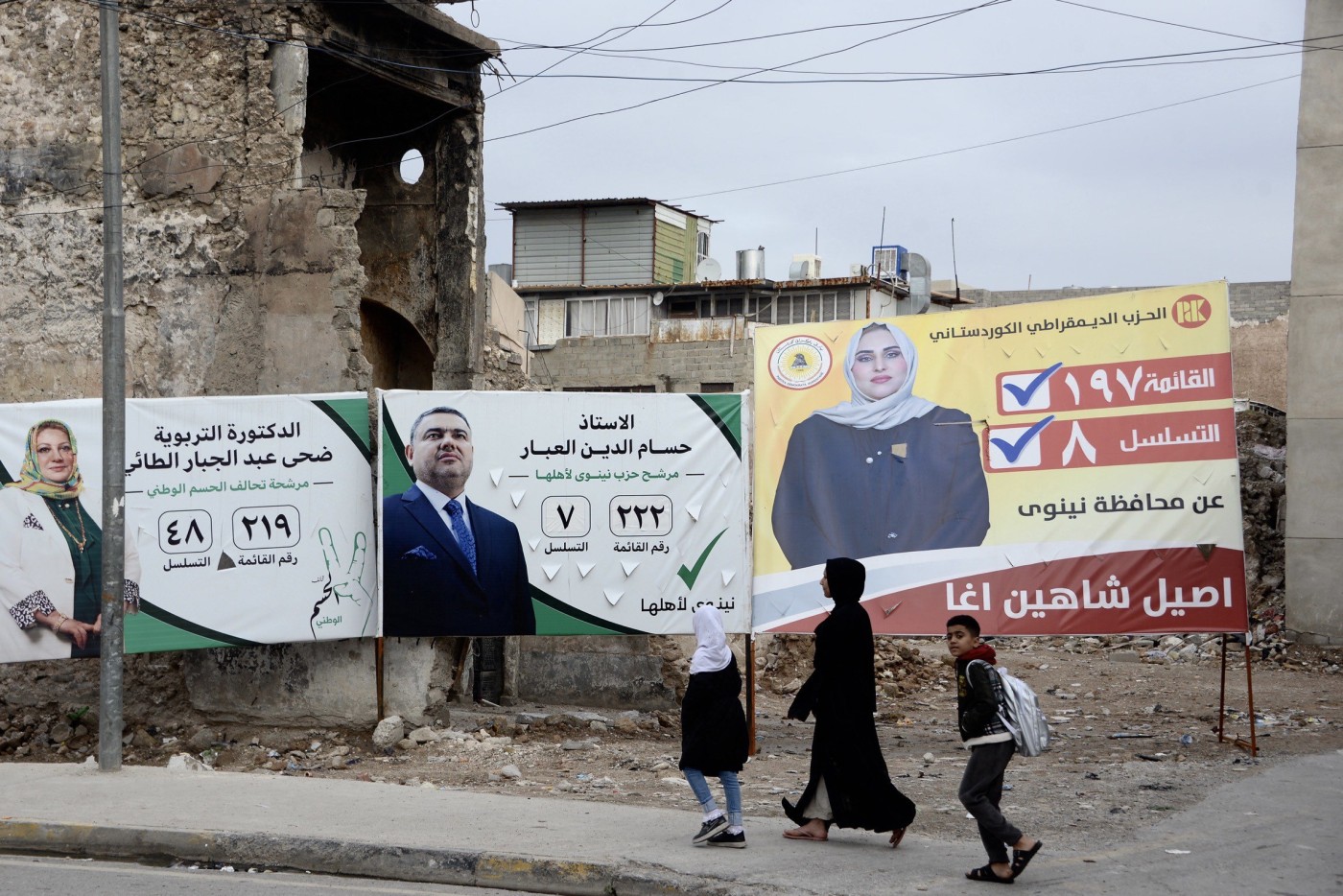
 Facebook
Facebook
 LinkedIn
LinkedIn
 Telegram
Telegram
 X
X
